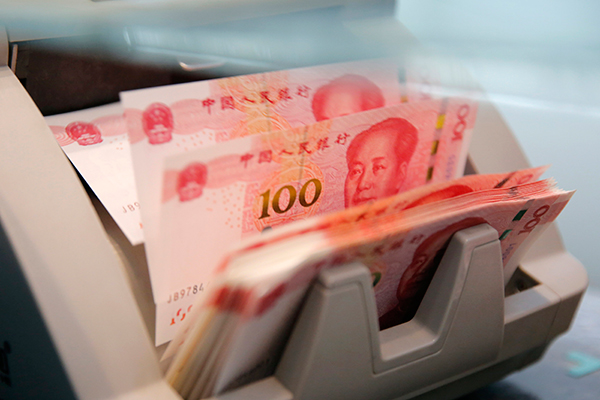
Editor's Note: The People's Bank of China recently released a report on the implementation of China's monetary policy in the third quarter of 2019, in which it said the country will continue to implement a sound and prudent monetary policy, innovate and improve financial macro-control, strengthen counter-cyclical regulation, defuse risks while promoting high-quality development, properly deal with short-term downward pressure, and refrain from launching large-scale stimulus packages. Beijing Youth Daily comments:
Under market pressures at home and abroad, China's monetary policy is of vital importance to both Chinese and global markets. During the international financial crisis, the United States, Japan and European countries implemented rounds of quantitative easing, but they all failed to achieve expected effects. Large-scale, widespread monetary loosening is a dose of "poison", not workable medicine.
The bickering between the White House and the US Federal Reserve over monetary policy and the Fed's caution about cutting interest rates have also highlighted the former's utilitarianism and the latter's caution about the risks of a flood of money. So China's monetary authorities need to adopt precise monetary measures and reasonably adjust the policy valve, to ensure that the market has reasonable and adequate liquidity.
First, the main tone of its monetary policy needs to be clarified to stabilize market expectations.
Second, it needs to use multiple tools to ensure reasonably abundant market liquidity. For example, while lowering the required reserve ratio for banks to ensure liquidity, it should prioritize addressing the financing difficulties of private enterprises, in particular small and micro businesses.
Third, it should improve the formation mechanism for the prime loan rate to make loan interest rates market-oriented and the transmission channel of interest rate liberalization unblocked. By deepening financial supply-side structural reform, it can prompt commercial banks to improve their business behavior and reduce the financing costs for enterprises through market regulation.
Fourth, it should prevent internal and external risks through effective measures, such as adopting rigid restraint measures to stop illegal financial activities and establishing "lines of defense" to preempt small banks' liquidity risks.
In addition, China should give foreign banks and insurance institutions more rights and interests in the domestic market and provide legal protection for foreign investment in the country, which will help stabilize the domestic financial market.


